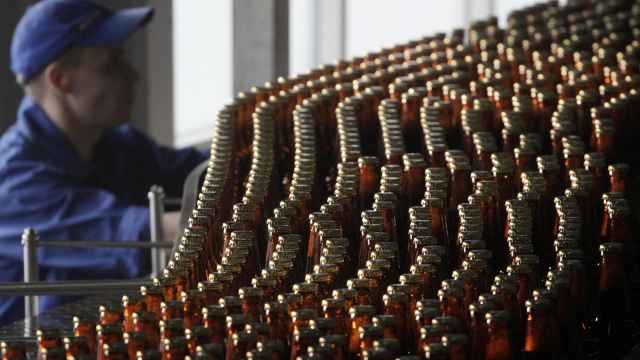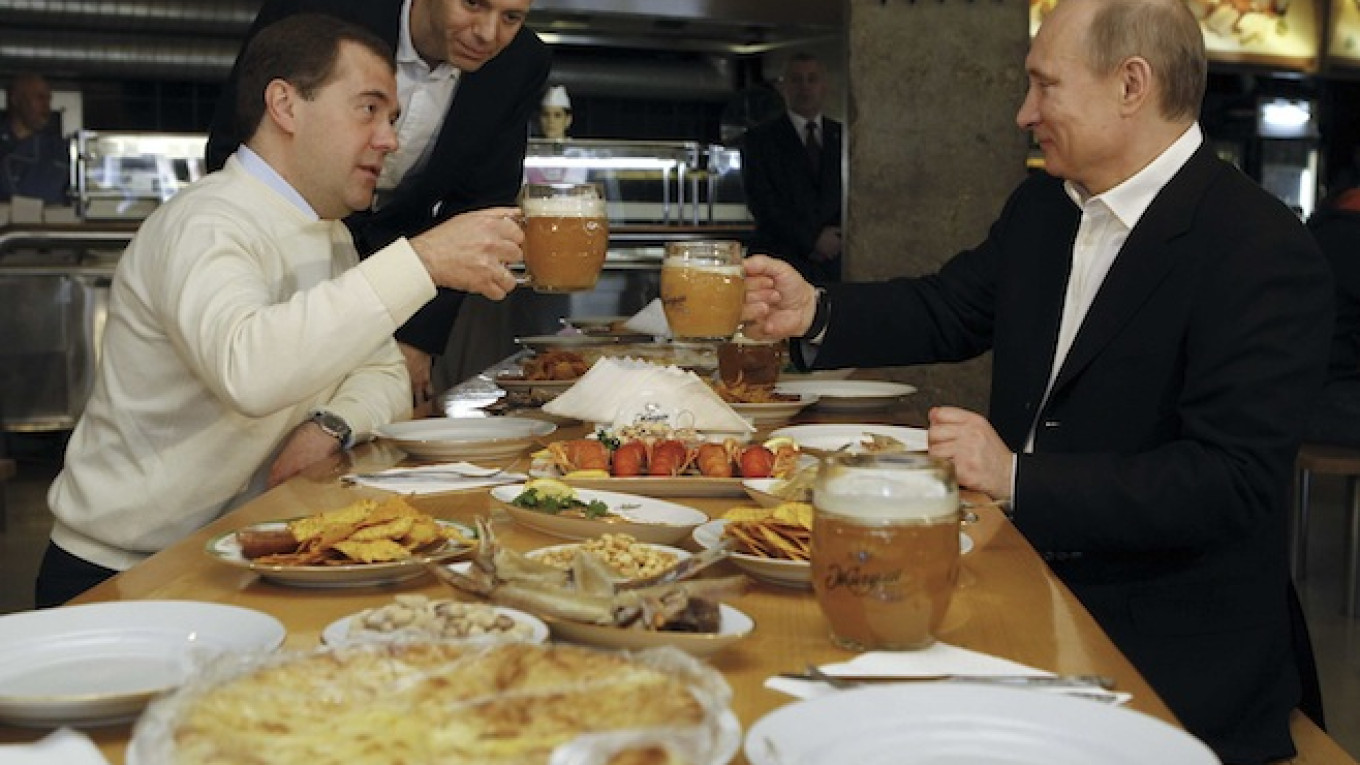The Russian government started to tighten beer market regulation in 2010 by tripling excise duties, followed by restrictions on sales, advertising and consumption, as part of a campaign to curb alcoholism.
Here are some milestones that have changed the market landscape:
2010
Increases beer taxes by 200 percent.
2011
Russian President Dmitry Medvedev signs a bill extending to beer regulations that had already been applied to stronger spirits.
Excise duty rises by 11 percent.
2012
Russia bans beer drinking in public places. Also bans beer advertising on television, the Internet and outdoors.
Excise duty rises by 20 percent.

An employee works at a line bottling beer at Carlsberg brewery "Baltika-Pikra" factory in Krasnoyarsk.
2013
Bans beer sales from kiosks. Sales elsewhere are banned from 11 p.m. to 8 a.m., excluding bars, cafes and nightclubs. In some regions beer sales are banned between 9 p.m. and 11 a.m.
Beer advertising ban extended to printed media.
Excise duty rises by 25 percent.
Russian lawmakers call for an increase in the legal drinking age to 21 from 18; bill submitted to State Duma lower house of parliament.
Voluntary agreement from Russian brewers to stop selling beer in plastic bottles of more than 2.5 liters, or 2 liters for beer with an alcohol content above 6 percent, from January 2014.
2014
Excise duty rises 20 percent.
The lower house of parliament takes the first step towards limiting the size of plastic beer bottles.
Russia relaxes its ban on advertising, allowing beer and beer-based beverages to be promoted on television, provided the context is sports-related, as well as in print.
Lawmakers discuss time frame for the introduction of automated control over production volumes and distribution, which brewers expect to lead to increased costs.


